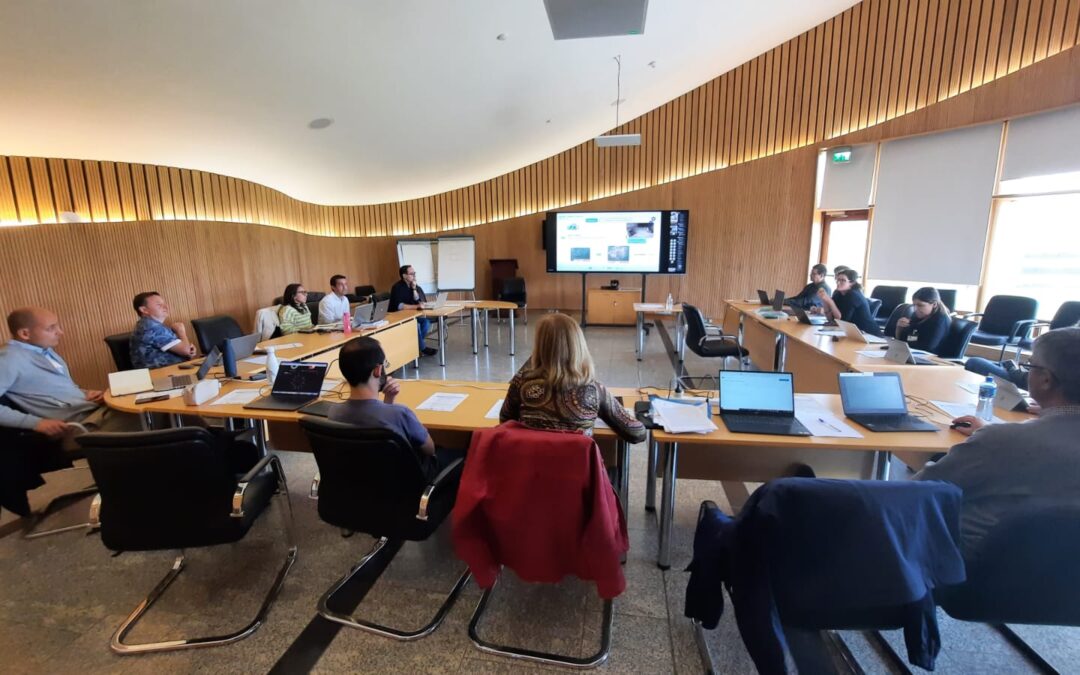Galway 26-27th June
The second steering committee meeting of the Free LitterAT project, “Advancing towards litter-free Atlantic coastal communities by preventing and reducing macro and micro litter,” coordinated by CETMAR, took place in Galway on June 26 and 27. It was organized by the Marine Institute with the participation of the project partners.
The meeting provided an opportunity to review the progress on project activities and tasks, to plan activities/tasks for the coming months and to identify joint work and necessary partner interactions.
During the first day, the partnership reviewed ongoing tasks to study and improve waste management in ports, recycling of end-of-life fishing gears, management of waste incidentally fished, and socioeconomic aspects related to the social perception of the presence of marine litter. Additionally, advancements were shared regarding planned actions for the detection and removal of abandoned, lost or discarded fishing gear (ALDFG), fishing for litter actions, and the removal of marine litter in coastal accumulations sites and in remote areas.
Moreover, partners reviewed the progress in the development of technologies for detecting and monitoring seabed litter, creating a standardized methodology for the analysis and monitoring of microplastics, organizing workshops aimed at supporting the identification of marine litter sources, and the comprehensive assessment of macro and micro marine litter pollution in the Atlantic area.
The day concluded with a discussion group focused on technologies for detecting and locating lost or abandoned fishing gear and planning related pilot actions.
The second day of the meeting was devoted to reviewing modelling activities to study the behaviour and distribution of marine litter. Partners are conducting studies on the physical and biological degradation of plastic litter and developing drift and behaviour models for abandoned, lost or discarded nets, ropes, and other fishing gears in the marine environment. An interactive platform is also being developed to facilitate the usability of the models and to make them accessible to the project’s end-users.
Finally, the partnership reviewed communication, capitalization, and project coordination and management issues, and concluded with a discussion group to plan upcoming tasks related to waste management in ports and life cycle studies of fishing gear.



